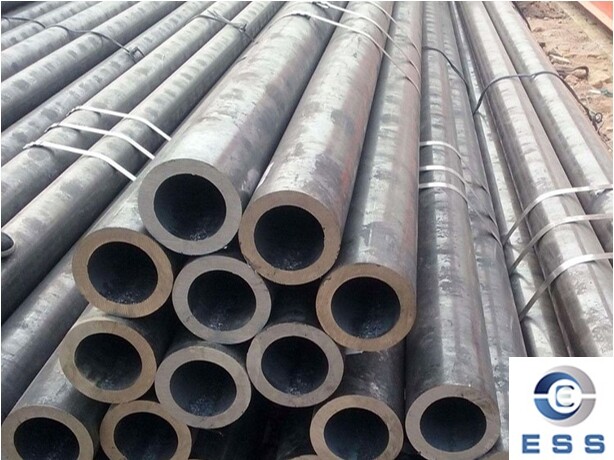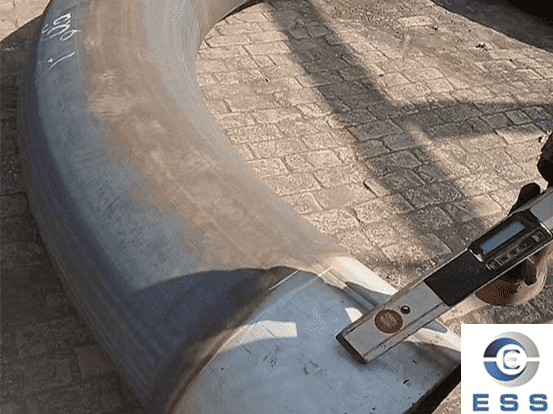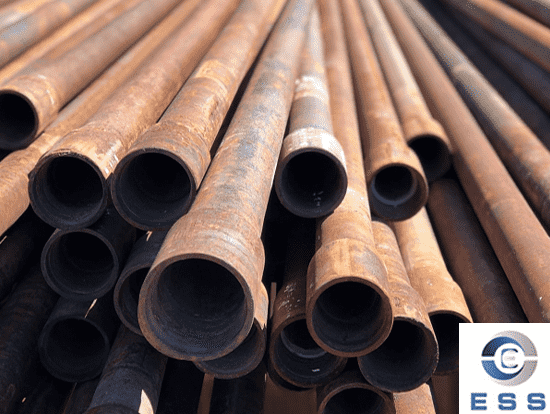
The high temperature resistance of boiler tube refers to their
ability to withstand and maintain stable performance in high temperature
environments. The high temperature resistance of boiler tubes varies depending
on the material. The following are the high temperature resistance of some
common boiler tube materials:
Carbon steel boiler tubes
Generally, carbon steel boiler tubes have relatively poor high
temperature resistance and can usually only be used below 500 degrees Celsius.
At high temperatures, carbon steel will soften and creep, resulting in
deformation, rupture, and even increased risk of tube bursting.
Alloy steel boiler tubes
Alloy steel boiler tubes are made of carbon steel with a variety of
alloy elements, such as chromium, molybdenum, nickel, etc., which significantly
improves heat resistance. This type of boiler tube can be used above 800
degrees Celsius and can withstand higher operating temperatures and heat loads.
It has good creep resistance, can maintain good strength and stability at high
temperatures, and reduce deformation and damage caused by creep.
Stainless steel boiler tubes
Stainless steel boiler tubes have good high temperature resistance,
such as the commonly used 304, 316L and other materials, which can operate
stably for a long time at high temperatures. Its anti-oxidation performance is
excellent, and it is not easy to be oxidized in high temperature environments.
The oxide film formed on the surface can play a certain protective role to
prevent further oxidation corrosion. It is suitable for some occasions with
high requirements for corrosion resistance and high temperature resistance, but
the price is relatively high.
Nickel-based alloy boiler tubes
Nickel-based alloy boiler tubes have excellent high temperature
resistance and can be used in high temperature environments above 1000℃. It has
good creep resistance and anti-oxidation performance, and can maintain high
strength and good toughness at high temperatures. The corrosion resistance is
also very good, and it can resist the erosion of various corrosive media at
high temperatures, but the cost is high, and it is generally used in extremely
harsh working conditions such as high temperature, high pressure, and strong
corrosion.
Ceramic composite steel pipes
Ceramic composite steel pipes are made of steel pipes as the matrix,
and a layer of ceramic material is compounded on their inner wall. This
composite pipe has extremely high high temperature resistance and can withstand
temperatures of 1200℃ or even higher. The ceramic layer has good wear
resistance and corrosion resistance, and can effectively resist wear and
corrosion at high temperatures.
Summary
In addition to the characteristics of the material itself, the high
temperature resistance of the boiler tube is also affected by many factors,
such as pipe wall thickness, pipe structure, heat transfer method, etc. In the
application, it is necessary to select appropriate materials and design schemes
according to the actual working conditions to ensure that the boiler tube can
operate safely and reliably in a high temperature environment.













 Eastern Steel Manufacturing Co.,Ltd not only improve product production and sales services, but also provide additional value-added services. As long as you need, we can complete your specific needs together.
Eastern Steel Manufacturing Co.,Ltd not only improve product production and sales services, but also provide additional value-added services. As long as you need, we can complete your specific needs together.










